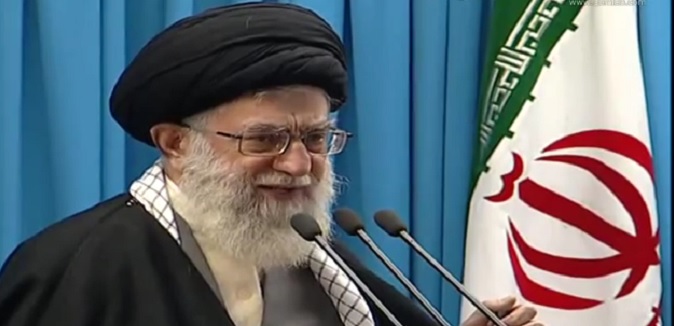Top Iranian cleric Ayatollah Imami Kashani declared in a nationally televised sermon on Friday that Tehran would continue pushing forward with its nuclear program despite the intentions of the country’s “enemies,” prompting the Wall Street Journal – which read the boast against the backdrop of similar remarks recently aired by other senior figures – to assess that Iranian leaders “show no signs of preparing [the] public for concessions to [the] West.”
Wednesday marked the National Day of Nuclear Technology across Iran, and Supreme Leader Ayatollah Ali Khamenei declared that his country’s “nuclear achievements are unstoppable.” Tehran’s Islamist leaders continue to build national shrines and memorials to the scientists who have worked—and were killed—for Iran’s nuclear advances.
“Any retreat on the nuclear issue, given the amount of pride and sunk costs it is entangled with, would have to be accompanied by momentous Western concessions,” said Ali Vaez, a London-based Iran expert at the International Crisis Group.
Top officials from the government of Iranian President Hassan Rouhani, up to and including Rouahni himself, have repeatedly and explicitly ruled out concessions on uranium enrichment, plutonium production, and ballistic missile development which U.S. analysts consider to be absolute minimums for putting a nuclear bomb beyond Tehran’s reach.
Supreme Leader Ayatollah Ali Khamenei last week barred Iranian negotiators from trading away what he described as the country’s “nuclear achievements.” This weekend Iran’s atomic energy chief Ali Akbar Salehi went further, insisting, first, that Tehran has a right to enrich uranium to weapons-grade levels of purity and, second, that Iran will need 30,000 additional centrifuges to meet its energy needs.
“If we want to use the Natanz enrichment facility to produce the annual fuel of Bushehr nuclear power plant, we need to build 30,000 new centrifuges,” Salehi was quoted by the Fars news agency as saying.
U.S. experts – including prominent supporters of the Obama administration’s diplomacy with the Islamic republic – have calculated that any deal putting Iran’s atomic program beyond use for weaponization would have to include prohibitions on the creation of highly enriched uranium and require Iranian scientists to dismantle thousands of already-existing centrifuges.
Evaluating red lines set by Iranian officials, CNN host Fareed Zakaria had already last January worried that the P5+1 global powers and the Islamic Republic were headed towards a “diplomatic trainwreck” and that he was not “even quite sure what they’re going to talk about if these are the opening positions.” Zakaria noted at the time that “it’s very hard to walk back” the absolutist positions taken by Iranian leaders.
Obama administration officials have sought to answer skeptics by suggesting that hardline Iranian declarations are just bargaining positions, while skeptics have countered by pointing out that – even as bargaining positions – the widely broadcast statements may raise Iranian public expectations and close off necessary compromises.
[Photo: MrCode2222 / YouTube]




